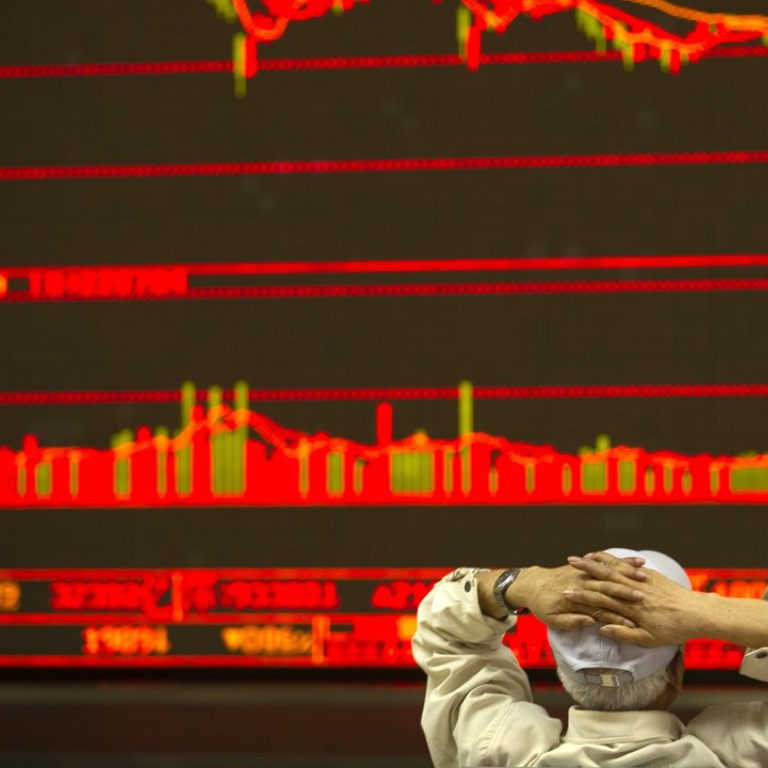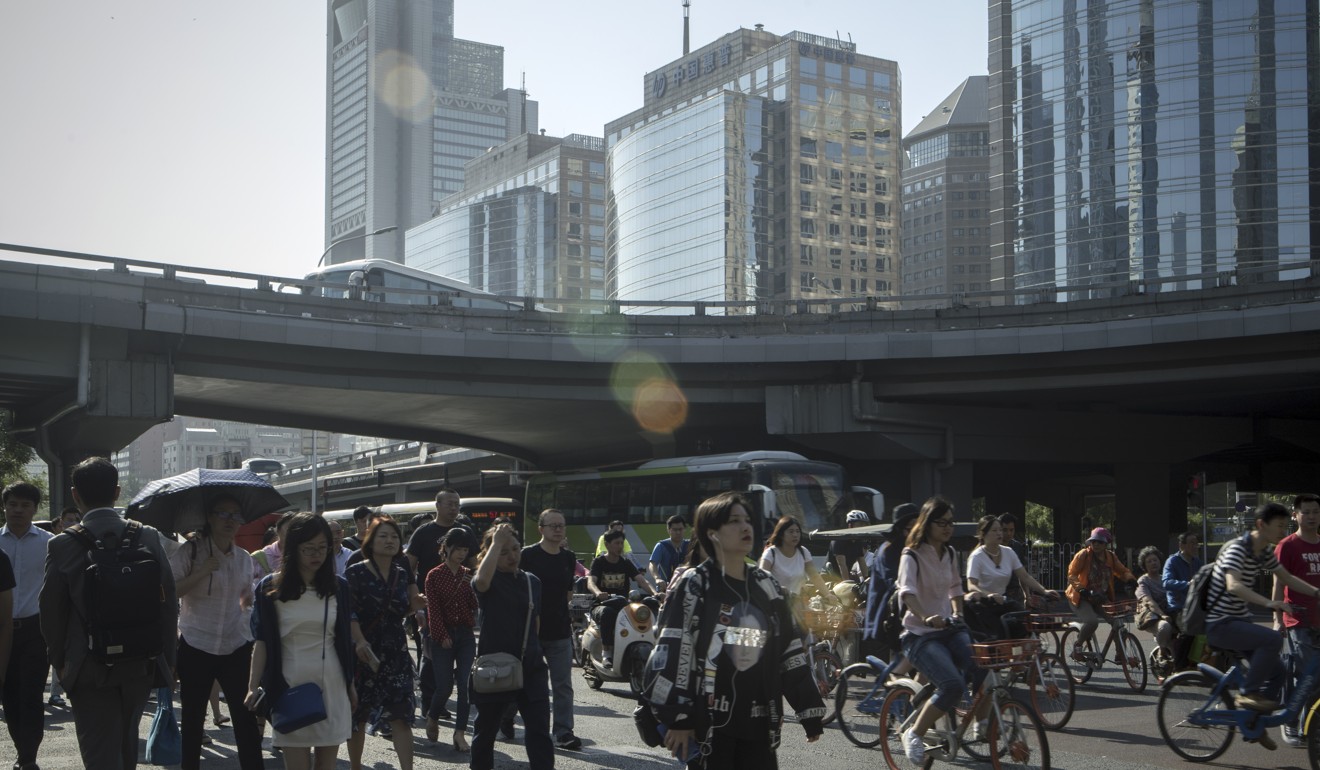
China stocks world’s worst performers in first half of 2018, volatility surges in Hong Kong to two-year high
Benchmark Shanghai Composite Index rises for first time this week on Friday to eke out 2.2pc gain
China stocks finished the first half of 2018 as the worst performers among the world’s major markets, with the benchmark tracking equities worth US$6.4 trillion slipping into bear territory this week. Hong Kong fared better, but volatility in its stock market surged to a two-year high.
The Shanghai Composite Index, which rose for the first time this week on Friday to eke out a 2.2 per cent gain after the People’s Bank of China signalled it would adopt pro-growth policies, recorded a 14 per cent decline in the first half of the year. The world’s second-largest stock market has been rattled by the escalating trade tension between the United States and China, an intensified crackdown on the shadow banking system by Beijing and a wave of bond defaults. Its rebound on Friday came after a decline of 20 per cent from a high in January.
We have probably already seen the market bottoming out
In a statement on Thursday night after a quarterly meeting, the PBOC said it would watch domestic and global economic developments closely and step up pre-emptive policy fine tuning. The central bank’s wording was interpreted by traders as signalling a shift in monetary policy, as there was no reference to economic growth in its last statement, at the end of 2017.
“The central bank will probably turn on its taps to release some liquidity, but not too significantly,” said Wang Zheng, chief investment officer at Jingxi Investment Management in Shanghai. “We have probably already seen the market bottoming out.”
The Shanghai Composite Index jumped by 60.52 points to 2,847.42 on Friday. It had shed 8 per cent in June, its biggest monthly drop since January 2016, when the gauge plunged by 23 per cent. A measure tracking stocks on the technology heavy Shenzhen exchange surged by 3.3 per cent.
But buying remained lukewarm, as traders cautiously weighed market sentiment. The turnover on the Shanghai exchange was 13 per cent below its 30-day average on Friday, but 2 per cent higher on the Shenzhen bourse, according to Bloomberg data.

Foreign investors were net buyers in June, after mainland-traded stocks were added to MSCI’s global benchmarks. They bought a combined 32 billion yuan (US$4.83 billion) worth of stocks through the exchange link with Hong Kong, according to Bloomberg data.
This period also saw US$1.34 trillion in market cap – the equivalent of Australia’s entire economy – wiped off China stocks. Telecoms and technology stocks were sold the most, because these sectors have maximum exposure to the US. ZTE, the telecoms equipment maker at the centre of China-US trade tensions, has tumbled by 64 per cent to 13.03 yuan. GoerTek, an Apple supplier, has lost 41 per cent to 10.19 yuan and Dongxu Optoelectronic Technology has lost 35 per cent to 6.06 yuan.
In Hong Kong, the Hang Seng Index added 1.6 per cent, or 457.79 points, to 28,955.11 on Friday. The Hang Seng China Enterprises Index, or the H-share gauge, gained 1.9 per cent.
While the city’s benchmark dropped by only 3.2 per cent in the first half, the market endured bigger price swings. The 100-day volatility on the Hang Seng Index rose to its highest level in two years, according to Bloomberg data. Stocks were buffeted by US interest rate increases, a weakening Hong Kong dollar and negative news flows from China.
Among the biggest decliners in the first six months was pork processor WH Group, which slid by 28 per cent to HK$6.39 because of the worsening outlook of its US business. Geely Automobile Holdings, which saw its share price more than triple last year and was the Hang Seng Index’s best performer, sank by 25 per cent to HK$20.35. AAC Technologies Holdings, which relies on the US for about two-thirds of its sales, shed 21 per cent to HK$110.50.
BOC Aviation added 1.3 per cent to HK$48.75 on Friday after a wholly owned unit agreed to buy five Airbus A320 planes for about US$553 million.

